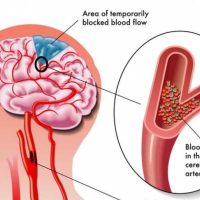 The tropical paradise island of Bali has many things to offer; the unique artwork, the beautiful scenery, and great parties. One other event you won’t forget is if you experience gastroenteritis or as it is commonly called on this island, ”Bali Belly”!
The tropical paradise island of Bali has many things to offer; the unique artwork, the beautiful scenery, and great parties. One other event you won’t forget is if you experience gastroenteritis or as it is commonly called on this island, ”Bali Belly”!
Another term commonly used to describe Bali Belly is Traveler’s Diarrhea. Seem familiar? Well you should be familiar because it could happen to any traveler, as much as 50% of travelers, which accounts for up to 10 million people! This condition is quite often seen in Bali. At BIMC Hospital Nusa Dua, diarrhea is one of the main complaints that bring people through our doors to seek medical attention.
Although everyone has a risk to get diarrhea during traveling, it’s more likely to occur in persons who are immunosupressed, diabetic, or with inflammatory bowel disease, and persons taking H2 antagonist or antacids (medication for gastric ulcers) long term.
The main source of infection is food and water that has been contaminated by faeces. The cause of the infection can be a virus, parasite, or bacteria.
Escherichia coli (E. coli) bacteria are often a cause of traveler’s diarrhea. E. coli bacteria are normally found in the human intestine. There are many varieties of E. coli bacteria. Usually your body becomes used to the E. coli in your environment and the bacteria do not cause intestinal problems. However, when you are exposed to new varieties of E. coli bacteria, your body may react to substances produced by the bacteria. These toxins may interfere with your intestine’s ability to absorb water. This causes diarrhea.
Sometimes traveler’s diarrhea is caused by the stress of traveling, jet lag, a different diet, or other factors.
Travelers can minimize their risk for Bali belly by practicing the following effective preventive measures:
- Do not drink untreated water, including ice cubes in drinks.
- Avoid food and beverages from street vendors.
- Eat only foods that are cooked and still hot, or fruits and vegetables that you peel yourself.
- Do not eat raw or partially cooked fish or shellfish. Fully cooked fish and shellfish are safe.
- Brushing your teeth with untreated water is usually safe. Most toothpastes contain antibacterial substances. Do not swallow the water.
- Carbonated soft drinks and water, bottled water, wine, and beer are usually safe without ice. Do not add ice that has been made from tap water.
- Avoid uncooked dairy products.
Routine antimicrobial prophylaxis increases the traveler’s risk for adverse reactions and for infections with resistant organisms. Because antimicrobials can increase a traveler’s susceptibility to resistant bacterial pathogens and provide no protection against either viral or parasitic pathogens, they can give travelers a false sense of security.
Some experts believe diarrhea is the body’s defense mechanism to minimize contact time between gut pathogens and intestinal mucosa. Therefore, anti-motility drugs, containing loperamide, diphenoxylate, and paregoric, must be used cautiously, because they can increase the severity of disease by delaying clearance of causative organisms.
Traveler’s diarrhea or Bali belly is a self limited disorder and often resolves without specific treatment, 90% of cases resolve within 1 week. The main complication is dehydration which could develop to other serious conditions.
This is what BIMC Hospital Nusa Dua would recommend to our patients:
AVOID
- Greasy fried foods
- Soft drinks
- Alcohol
- Coffee
- All dairy foods (except natural yoghurt)
- Spicy food
- Excessive smoking
- Very hot or very cold (ice) food or drink
RECOMMENDED
- Isotonic sports drinks (i.e. Gatorade, Pocari Sweat) or electrolyte replacement salts (i.e. Oralit)
- Apples
- Bananas
- Plain rice or rice porridge
- Oats / porridge
- Semolina custard
- Clear soups
- Herbal teas (i.e. chamomile, peppermint)
- Natural yoghurt or acidophilus/biphodophilus supplements
- Ginger and / or peppermint (in lollies/sweets or teas)
- Take very small amounts of food/fluid at frequent intervals.
- Babies or young children may become intolerant to cows milk (lactose), and may temporarily need a soy based milk.
For further information, please contact us vial email nusadua@bimcbali.com











